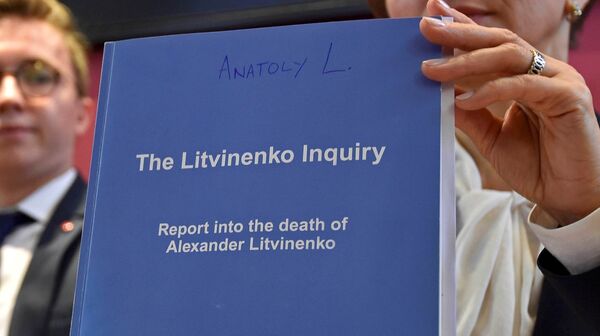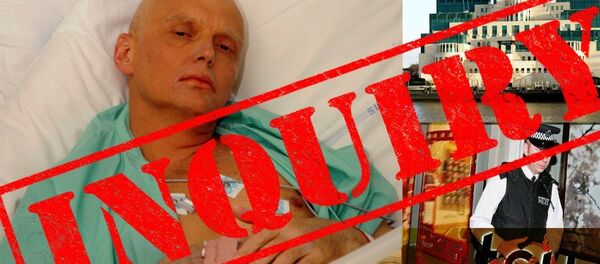Litvinenko, a Russian former secret service officer and a vocal critic of president Putin, was poisoned and killed in London in 2006 with a lethal dose of polonium-210, a radioactive substance.
The inquiry, carried out by former British judge Sir Robert Owen, was published at the end of January 2016.
The inquiry into the assassination of Alexander Litvinenko — report. https://t.co/oUQN5eMZKe #London
— Ian Hitchings (@IamIanHitchings) February 5, 2016
In its conclusion, Owen stated that Litvinenko had been killed by Russian agents Andrei Lugovoi and Dmitry Kovtun- whom he met in a London hotel hours before falling ill — and that the murder had "probably" been ordered by President Putin himself.

Dunkerley, who has published two books on the Litvinenko affair and is a senior fellow at the American University in Moscow, wrote in the Guardian that Owen's findings "are not supported by reliable evidence".
"The report relies on hearsay and is marred by inconsistent logic. It offers no factual insights into what really happened to Litvinenko, yet has been taken as gospel truth by governments and pundits across the West," Dunkerley wrote.
One of the many problems marring the Owen inquiry, according to Dunkerley, is that it presents several inconsistencies.
For instance, Lugovoi and Kovtun's exculpatory accounts of what happened were totally ignored because some of the evidence they provided was flawed.
Dunkerley also pointed out how the inquiry relied on heavily biased sources such as the account of Litvinenko associate and anti-Putin activist Alexander Goldfarb, and information spread by Russian oligarch Boris Berezovsky.
The report also gave undue relevance to Litvinenko's deathbed statement that Putin had ordered his poisoning.
"The statement does not explain how Litvinenko could possibly have known of the Russian president's culpability, nor does it offer evidence to back up the allegation," Dunkerley argued.
Most importantly, Durkerley explained, the report itself concedes that there is not enough solid evidence to accuse the Russian state of the murder.
"The report admits that there are no hard facts to support the claims against Putin, noting that 'evidence of Russian state involvement in most of these deaths is circumstantial.' But 'circumstantial' is used here as a euphemism for 'factually unsupported,'" Dunkerley wrote.
"In other words, Owen admits to being influenced by unproven cases in his consideration of culpability in Litvinenko's death."



